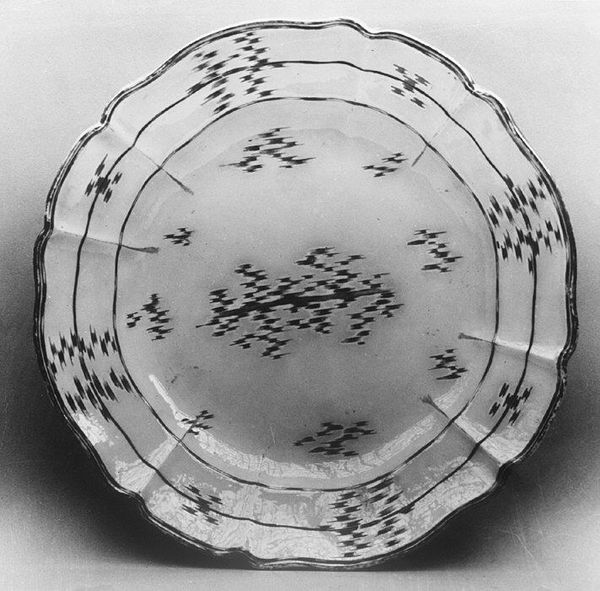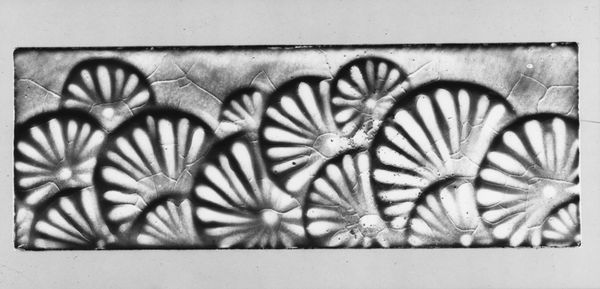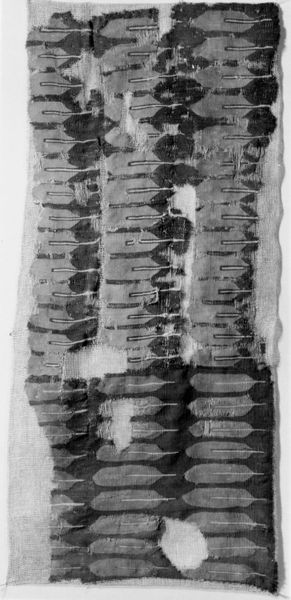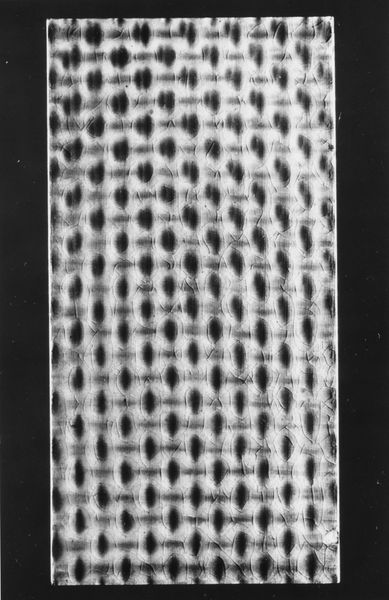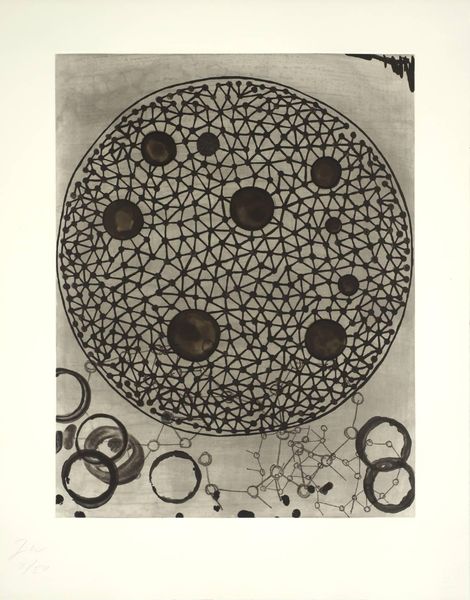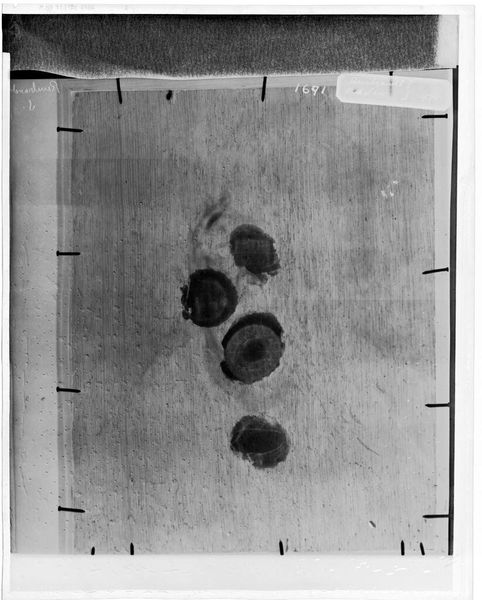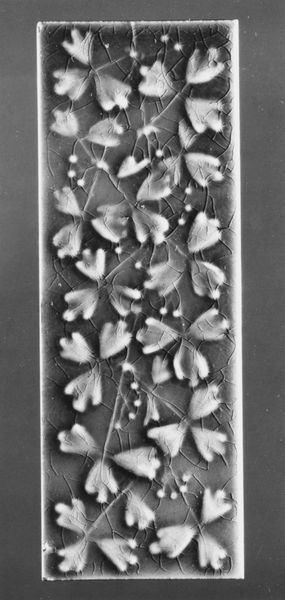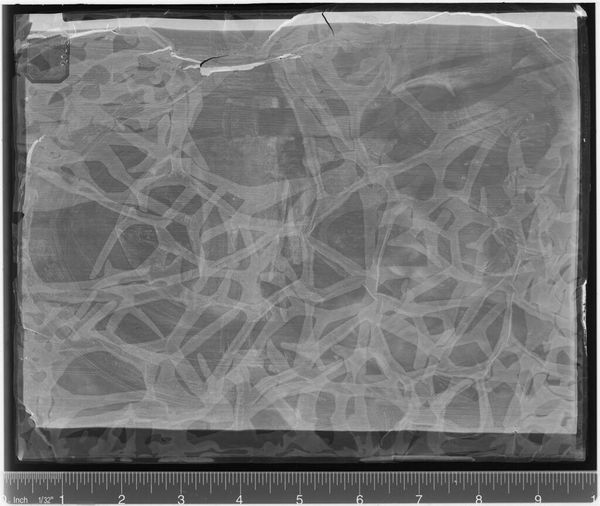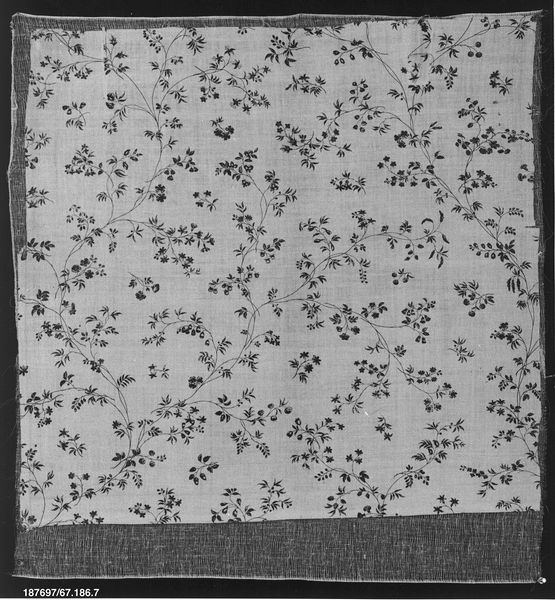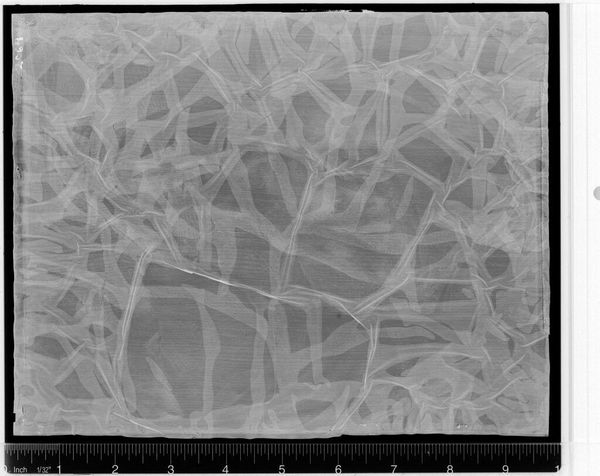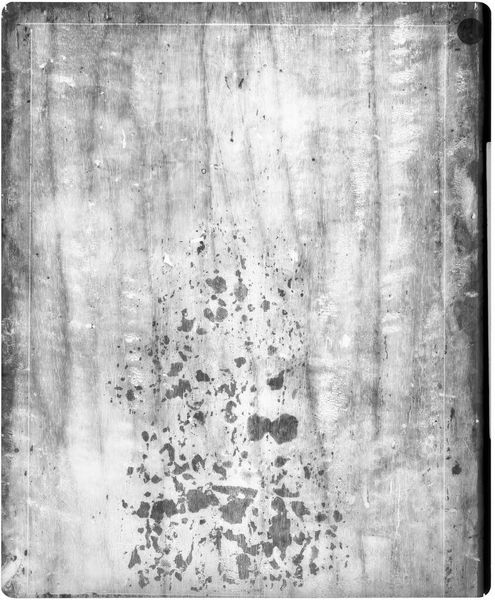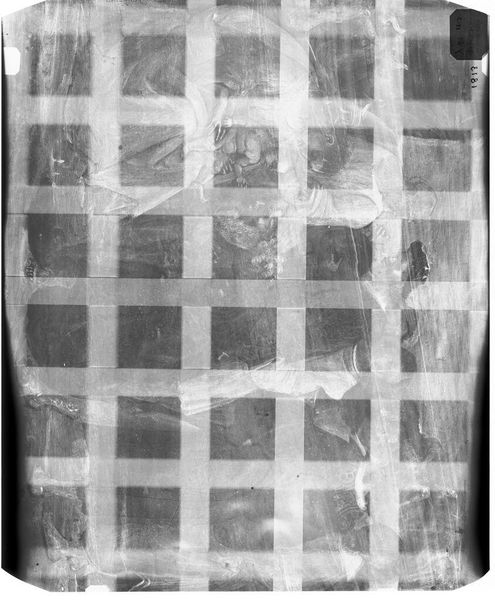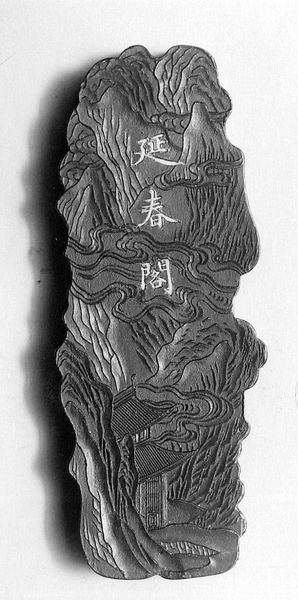
ceramic
#
3d sculpting
#
3d printed part
#
asian-art
#
ceramic
#
ring
#
japan
#
sculptural image
#
black and white theme
#
appetizing
#
stoneware
#
wash background
#
black and white
#
23_muromachi-period-1392-1573
#
food photography
Dimensions: H. 3 1/2 in. (8.9 cm)
Copyright: Public Domain
Editor: So this ceramic *Tea jar*, dating back to 1470-1490, was created by Shino Ienobu and currently resides at The Met. I'm struck by its... wabi-sabi aesthetic; this sense of embracing imperfection. What's your take on it? Curator: It's crucial to see this *Tea jar* as more than just a beautiful object. It embodies the socio-political currents of its time. The Muromachi period was marked by significant social upheaval. How do you see the concept of "imperfection" connecting with this societal context? Editor: Well, I guess embracing flaws could be a quiet form of rebellion, rejecting established ideals of perfection in art, especially considering the political and social turmoil during that era. Curator: Exactly! Think about the powerful Zen Buddhist influence during that time. Wabi-sabi wasn't just about aesthetics; it was about finding beauty and contentment amidst chaos. What philosophical perspectives might have been at play? How might class tensions be reflected? Editor: Maybe this embracing of simplicity also served as a counterpoint to the extravagant displays of wealth by the ruling elite. But does the choice of medium matter here? Ceramic feels almost… humble? Curator: The medium certainly amplifies the message! Ceramic, especially stoneware like this, connects us to the earth, to the common. Consider that tea ceremonies themselves evolved as spaces for egalitarian connection across social hierarchies, offering momentary respite from societal rigidity. The vessel matters deeply. Editor: Wow, I hadn't thought of it as a form of resistance, hidden in plain sight! I now see it in a new light! Curator: Precisely! Art often serves as a silent commentary. This piece helps me rethink art history's power to express counter-narratives, which is more potent than just the visual appeal.
Comments
No comments
Be the first to comment and join the conversation on the ultimate creative platform.
